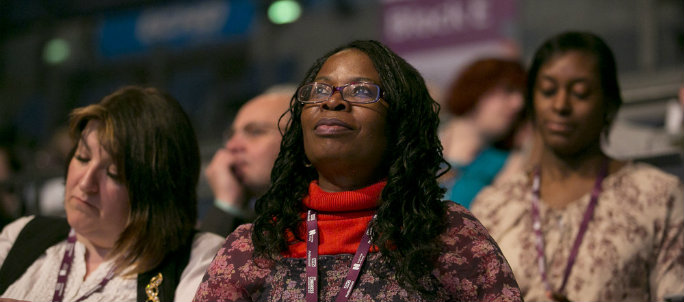
Wills: Frequently Asked Questions
The 10 second will challenge
Our lives are constantly changing, do any of the following relate to you?
- Having more than £5,000 in belongings and assets
- Started renting a property
- Moved home
- Bought property overseas
- Recently married
- Growing family
- Children under 18
- Separated or divorced
- Change in family structure
- Starting a business alongside work
- Sold a business
- Downsized
- Recently received inheritance
- Retired
Say yes to any of these of these?
The chances are your current will may be invalid.
Find out more about wills below and contact Octopus Legacy.

Your fee includes:
- a telephone conversation with one of our legal experts
- detailed legal advice to ensure the will meets your needs
- Will drafting plus written advice and instructions
- free secure storage of your new will
Will making fees start from just £80.
Contact Octopus Legacy about wills
Frequently asked questions about wills
Are there different types of wills?
Do I have to leave money to certain people?
I am in a cohabiting relationship, will my partner automatically inherit from me?
How can I ensure my children are looked after in my will?
What is Inheritance Tax?
Can I give gifts to certain people or charities?
What are executors?
Can I protect my assets from care fees?
I'm getting married for the second time, does this affect my will?
Are there different types of wills?
There are many different types of wills that you can consider. At RCNLaw, our experienced team will talk with you to find out about your situation and what you want to achieve through your will. With this information we can then advise you accordingly.The main types of wills we generally discuss are as follows:
- Straightforward Will
This is the most uncomplicated will to create. It usually leaves most assets to one person and may include some specific gifts to family, friends or charity. - Discretionary Trust Will
This can be used as part of inheritance tax planning, or if you don’t want to gift all of your assets outright to someone, for example if they are vulnerable and you would like to add some protection by creating a trust. This trust ensures your trustees look after the money for the people that you want to benefit. Trustees can then, in accordance with any directions that you have left, distribute the trust funds. - Interest in Possession Trust
A useful trust which can be used to protect assets to ensure they reach your intended beneficiary, but another person, such as your spouse to benefit from the assets during their lifetime. - Disabled Beneficiary Trust
If you are leaving assets to someone who is disabled, it is essential you consider including this trust within your will. If you leave assets to a disabled person outright, you may put them at risk of their means-tested benefits or other support being stopped, or their inheritance being used up by paying for care. Also, depending on the type of disability they have, they may not have the ability to manage a large sum of money. By placing their inheritance into a trust, you are allowing the beneficiary access to the money but it will be managed for their benefit by the trustees.
Do I have to leave money to certain people?
No, you’re not obliged to include anyone in your will that you don’t wish to. The law sets out certain categories of people who may be able to apply to the court to make a claim against your estate, if they feel they should not have been excluded or if you did not provide sufficiently for them. This category includes your spouse, ex-spouse, partner, children and anyone who was dependent on you.
You cannot completely avoid this from happening, but it is important to explain why you have decided to prepare the will in a certain way, as this will be considered by the court if a claim is brought. It is important you are as open and honest with us whilst drafting your will and tell us of any unusual family circumstances, so that we can give you the best advice possible.
I am in a cohabiting relationship, will my partner automatically inherit from me?
Many people think that if you are not married but are living with a partner as if you were a legally married couple, the surviving partner will be treated as if they are a spouse. This is not the case.
If you are in a relationship with your partner and living together but are not married or in a partnership, your partner has no legal right to any of your belongings if you die, even if you are engaged. The only way to ensure your partner is allowed to continue to live in your property, or can afford to pay the bills and running costs of the house is by providing for them in a will.
How can I ensure my children are looked after in my will?
Your will allows you to appoint people to act as guardians if your children are under the age of 18. These guardians will look after the welfare of your children until they reach adulthood.
As soon as a person reaches 18, they are entitled to receive their inheritance. However in your will, if you feel that this would be too young for your child to receive such money, you can specify an older age for them to inherit, such as 21 or 25.
Trustees can be appointed who will look after the money until the time that you want your children to inherit their estate.
What is Inheritance Tax?
Inheritance Tax is a tax on the property, money and possessions of someone who has died. A will can be an effective way to reduce the amount of tax to be paid, if you have a sizeable estate.
We can advise you on the best way to structure your will and your estate to try and minimise the amount of tax, and we‘ll advise you on the full range of exemptions and reliefs that are available.
Can I give gifts to certain people or charities?
Yes, if you want to leave specific items such as family heirlooms or give jewellery to certain people, you can outline this in your will.
You can also leave money to charity, again this can only be guaranteed if you include it in your will.
What are executors?
These are the people that you will appoint to deal with your estate if you die. These should be people that you trust to make decisions on your behalf, act honestly and to distribute your assets as set out in your will.
Can I protect my assets from care fees?
More people are becoming concerned about whether they will need care in the future and how they will pay for it. You may worry that you will spend all of your money paying for the care of a spouse or partner and have nothing left to pass onto your children.
When creating your will, if you outline this concern it is possible to include an 'interest in possession trust' to provide for your spouse or partner, whilst ensuring that those assets pass to your children after your spouse or partner passes away.
I’m getting married for the second time, does this affect my will?
Many people do not know that marriage revokes a will, so if you have entered a second marriage, you no longer have a will in place, meaning that all your assets will pass under the 'rules of intestacy'.
The rules of intestacy state that if a person is married, unless the estate is very large, the spouse will inherit everything. The danger of this situation is if you pass away and your new spouse inherits everything, they could leave all of the assets to whoever they want. Which may leave any children from your first marriage at risk of not receiving anything.
You can avoid this situation by making a new will on your second marriage and either making specific gifts to your children or by including an interest in possession trust within your will. This ensures that your children receive something as well as your spouse.
Join the UK's largest union and professional body for nursing
Whether you're a nurse, midwife, HCA, AP or student, you can get a huge range of benefits when you join the RCN.








